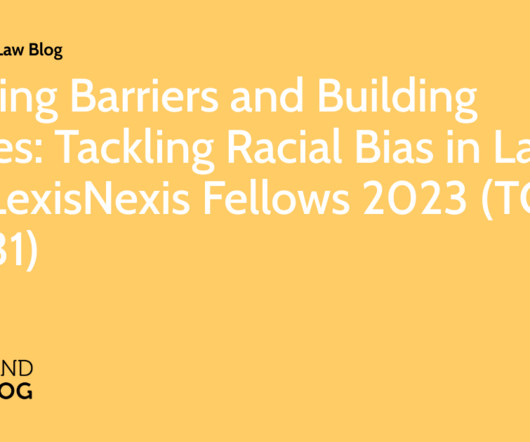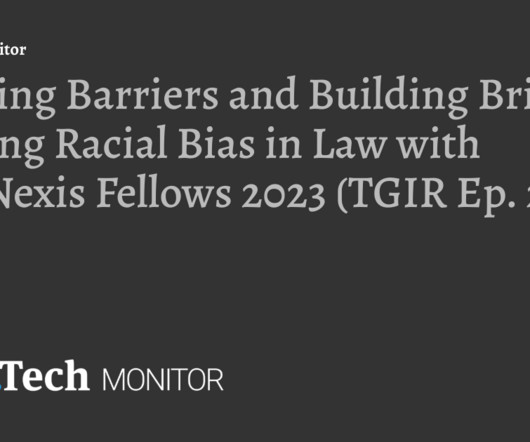Breaking Barriers and Building Bridges: Tackling Racial Bias in Law with LexisNexis Fellows 2023 (TGIR Ep. 231)
3 Geeks and a Law Blog
DECEMBER 26, 2023
Paul Campbell 12:44 Well, I noticed that more law schools are offering classes which are geared towards people who are interested in making our society a more perfect union. You know, many battles that affect Equity, injustice, in our country are fought in the courts. But case law tells us that it does.











Let's personalize your content